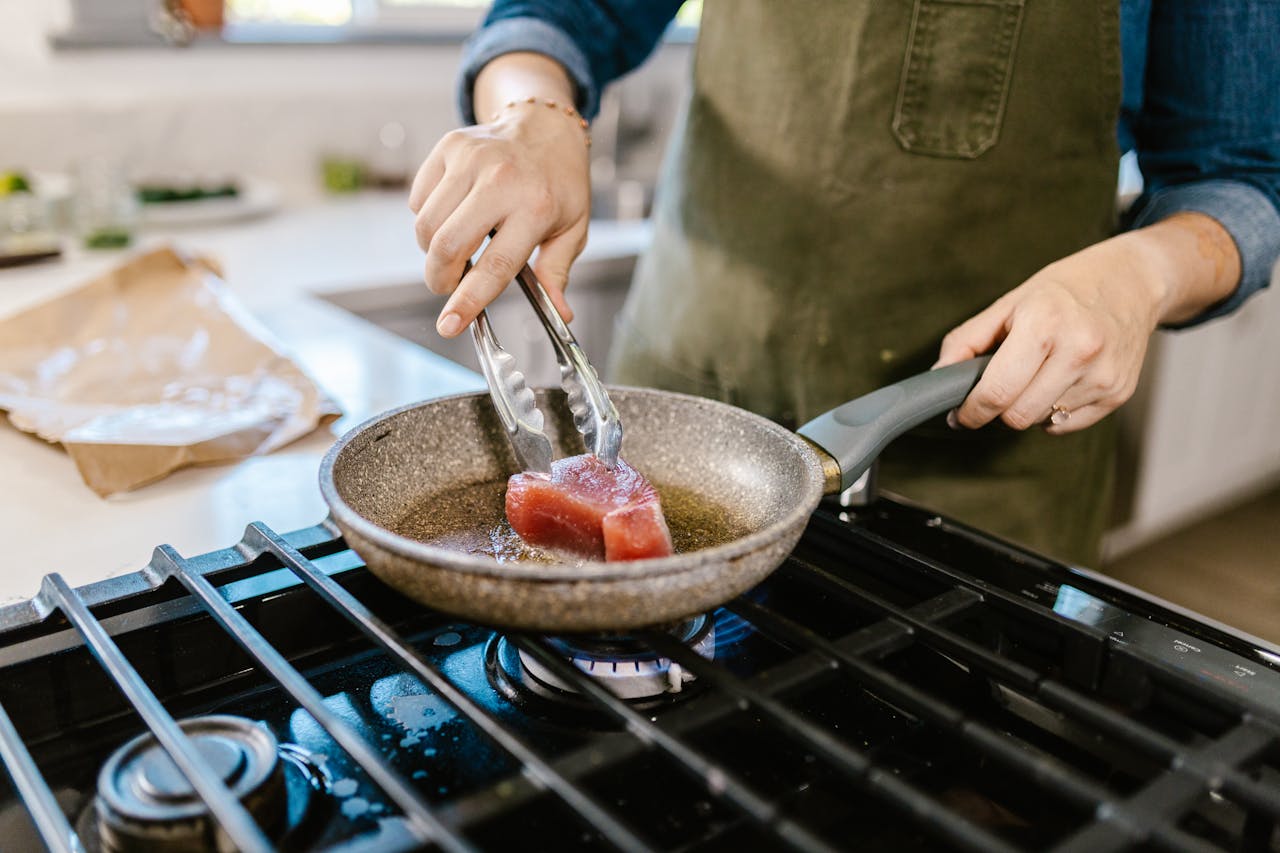Is your kitchen truly safe? Many seemingly harmless items can negatively impact your health over time. In a May 17 Instagram post, cardiologist Alok Chopra, founder of Aashlok Hospital (New Delhi, India), warned about five kitchen items that can be hazardous if used incorrectly.
Non-stick pans
When overheated, non-stick pans can release toxic fumes. Scratches on these pans can also release harmful chemicals like PFOA and PFAS. These compounds can accumulate in the body, causing endocrine disruption, immune deficiency, and long-term toxicity.
Dr. Chopra recommends switching to stainless steel, cast iron, glass, or ceramic cookware. If you continue using non-stick pans, avoid high heat and discard scratched ones.
 |
Stainless steel, cast iron, glass, or ceramic cookware are considered safer than non-stick cookware. Image: Pexels |
Stainless steel, cast iron, glass, or ceramic cookware are considered safer than non-stick cookware. Image: Pexels
Aluminum foil
Using aluminum foil to wrap acidic foods or cook at high temperatures can cause aluminum to leach into the food. Long-term aluminum exposure is linked to neurological problems and an increased risk of Alzheimer's disease. Furthermore, aluminum foil is non-biodegradable and harmful to the environment.
Solution: Use parchment paper for baking and glass or silicone containers for reheating and storing food.
Plastic food containers
Many plastics, especially older or low-quality ones, can release toxins like BPA, BPS, and phthalates, particularly when holding hot, oily food or used in a microwave. These chemicals can disrupt hormones, affecting reproductive health and the immune system. Black plastic, often recycled from electronic waste, can contain additional toxins.
Solution: Use glass, ceramic, or stainless steel containers for food storage. Never reheat food in plastic containers, even those labeled "microwave-safe."
Plastic cooking utensils
When exposed to heat, plastic spoons and spatulas can release harmful additives such as flame retardants, dyes, and microplastics. These substances can leach into food, accumulate in the body, and cause inflammation and long-term toxicity.
Solution: Switch to wooden, bamboo, or stainless steel utensils, which are safer, more durable, and environmentally friendly.
Gas stoves
Gas stoves emit toxic gases like benzene, nitrogen dioxide, and carbon monoxide, increasing the risk of asthma, respiratory inflammation, and even cancer. Homes with poor ventilation, especially those with elderly people and children, are at higher risk.
Solution: Prioritize using induction or electric stoves. If using a gas stove, ensure proper ventilation by opening windows, installing exhaust fans and chimneys, or using an air purifier.
Pham Lam (Hindustan Times)












